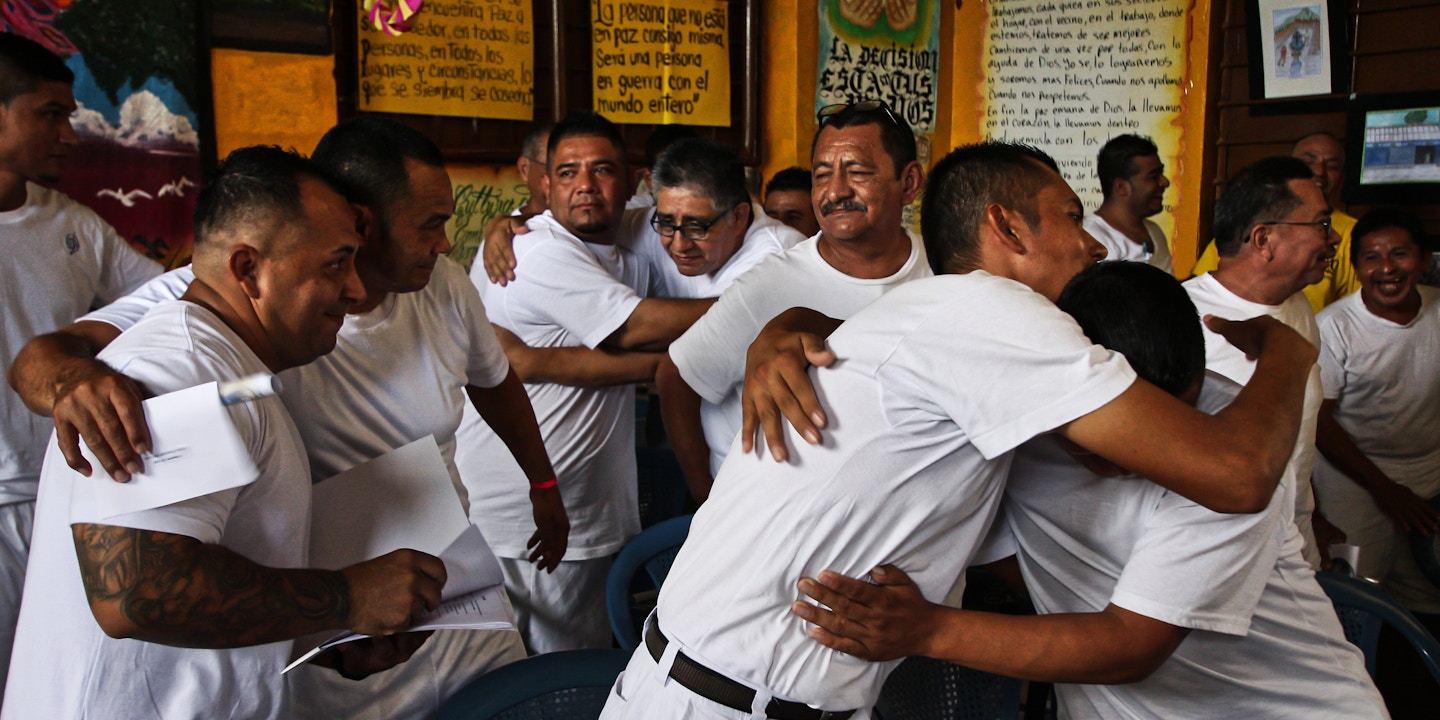by DANIELLE MACKEY & CORA CURRIER
 A group of inmates inside San Vicente prison celebrate that they complete the program Second Chance, that promotes peace culture within the former gang members.
A group of inmates inside San Vicente prison celebrate that they complete the program Second Chance, that promotes peace culture within the former gang members.
Oswaldo joined the Salvadoran gang Barrio 18 when he was 14 years old. By the time he was in his early 20s, he wanted out — and luckily, gang leaders gave him permission to leave. But they warned him: “No one will offer you a hand out there like the gang has.”
For a long while, that was true. For Oswaldo, his gang clique was his adopted family. They had his back, and they found food and shelter for him and his family. Without the clique, vulnerable and alone, he barely scraped by while selling toothbrushes at a market. Oswaldo had finished high school, and he hoped to find a steady job. But when he was invited in for an interview, he remembers, “the first question was, ‘Are you a gang member?’” Then, it was: Are you tattooed? Do you have family in a gang? Friends? Are you from a gang-controlled neighborhood? Oswaldo denied his past throughout the grilling, but couldn’t lie when the man doing the interviewing said he needed him to lift his shirt. Oswaldo’s torso is covered in Barrio 18 ink. So he was rejected from yet another job, and soon after, his wife left with their toddler son, calling Oswaldo a failure.
He told a trusted pastor that he was struggling. Privately, he was so desperate that he was considering rejoining the gang. The pastor told him he knew a business that wanted to hire ex-gang members. Oswaldo couldn’t believe it.
“This is a country where people don’t believe that gang members can change,” he told The Intercept last fall, sitting in a conference room, employed at the company the pastor told him about on that day three years earlier. The company is League Central America, a textile factory that makes collegiate wear for U.S. universities such as Arizona State and Yale. League’s president, Rodrigo Bolaños, has long been a rare and vocal advocate in the Salvadoran business community for hiring former gang members. Bolaños argues that the problem of gangs in El Salvador isn’t so complicated. There have been gangs across the world, from England to Chicago, at every time in history, he says.
“The same way gangs generate, you can also get them out of gangs, if you do positive forces like second chances, education,” he said. The company tests those who belonged to El Salvador’s three main rival gangs — MS-13 and two factions of Barrio 18 — with techniques like icebreaker games that require physical closeness. If a new hire couldn’t stand it, Bolaños said, “that person wasn’t ready.” The company subsidizes employees’ secondary and college education if they haven’t finished it, and offers classes on-site.
Intercept for more
